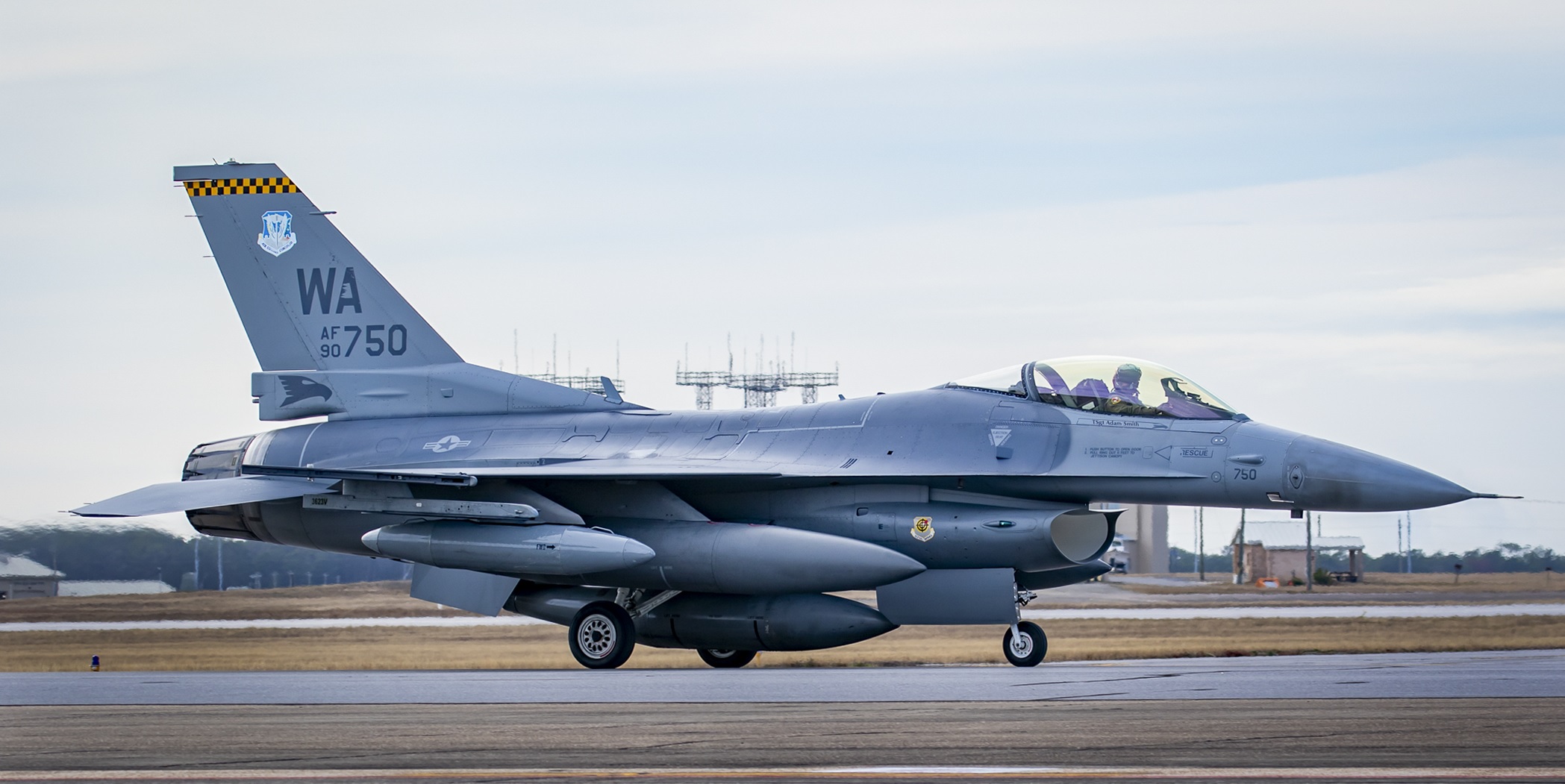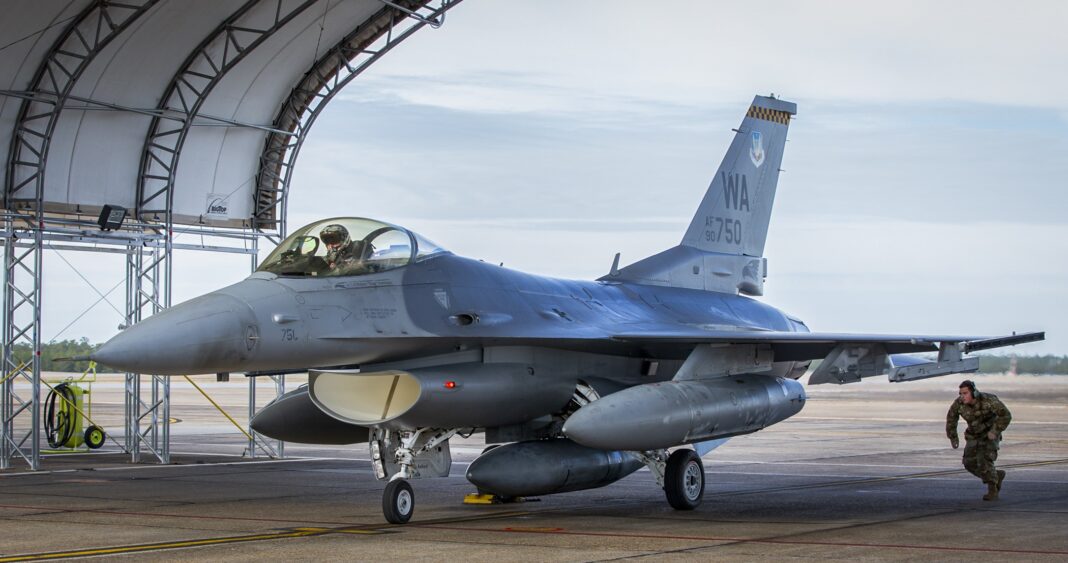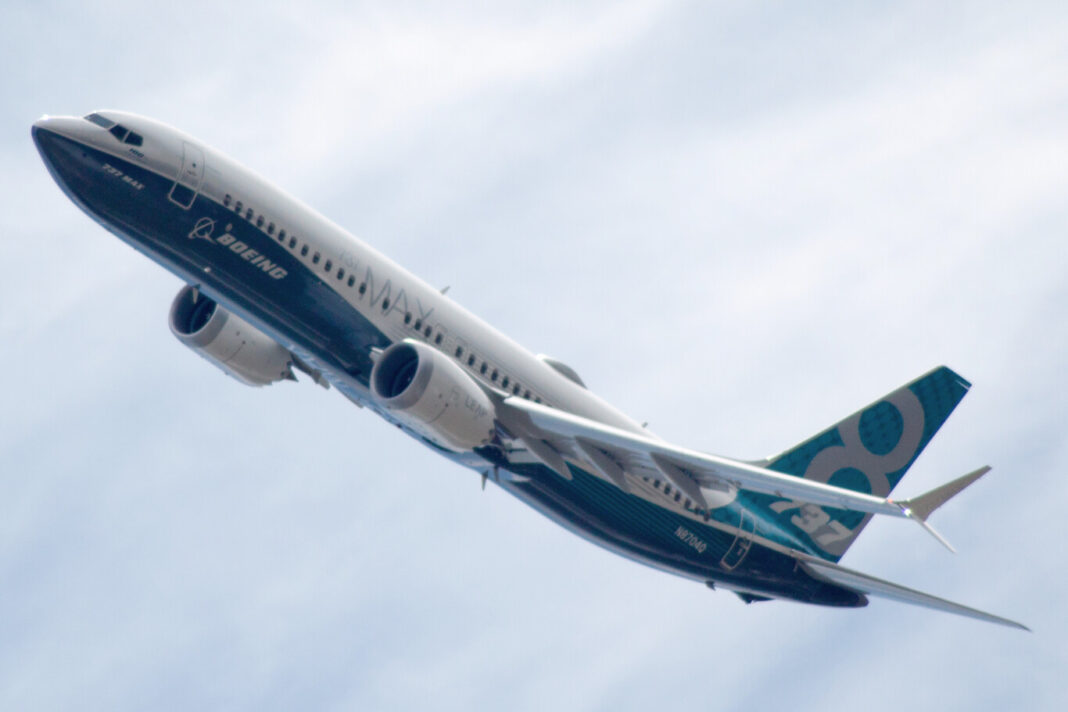The U.S. Air Force, under the VENOM program, will modify Lockheed Martin F-16 fighter aircrafts to conduct autonomous flight tests.
The first three (it looks like there will be more) F-16 Fighting Falcons arrived at the 96th and 53rd Test Wings, based at Eglin Air Force Base, ready to participate in the Viper Experimentation and Next-gen Operations Model – Autonomy Flying Testbed (VENOM-AFT) program.
VENOM-AFT is designed and funded to accelerate autonomy software testing of manned and unmanned aircraft. This program complements the Eglin Air Force Base autonomy and artificial intelligence data experimentation testbed and informs the Collaborative Combat Aircraft program and other autonomy developers.
The next step for the VENOM program is to modify F-16 aircraft into test platforms to rapidly assess autonomous capabilities.
“The VENOM program marks a pivotal chapter in the advancement of aerial combat capabilities. This transformative program holds the potential to redefine air combat paradigms by fostering novel autonomous functions for current and future crewed and uncrewed platforms,” said Maj. Ross Elder, VENOM developmental test lead. “We look forward to the culmination of years of engineering and collaboration, as VENOM leads a measured step towards a new age of aviation.” .
During these tests, pilots will be in the cockpit to monitor autonomy and ensure that flight test and mission systems objectives are met.

“It’s important to understand the ‘human-on-the-loop’ aspect of this type of testing, meaning that a pilot will be involved in the autonomy in real time and maintain the ability to start and stop specific algorithms,” said Lt. Col. Joe Gagnon, 85th TES commander. “There will never be a time where the VENOM aircraft will solely ‘fly by itself’ without a human component.”
Operators will provide feedback during modeling, simulation and post-flight to autonomy developers to improve performance over time and ensure that the AI is making the right decisions before and during flight.
The goal of the VENOM program is to enable the U.S. Air Force to rapidly iterate and expand the body of knowledge on potential AI solutions that can eventually be applied on platforms for real combat missions, together with real-time cooperation with manned aircraft.






